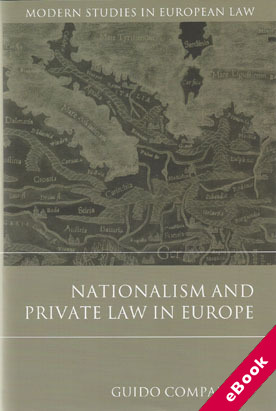
The device(s) you use to access the eBook content must be authorized with an Adobe ID before you download the product otherwise it will fail to register correctly.
For further information see https://www.wildy.com/ebook-formats
Once the order is confirmed an automated e-mail will be sent to you to allow you to download the eBook.
All eBooks are supplied firm sale and cannot be returned. If you believe there is a fault with your eBook then contact us on ebooks@wildy.com and we will help in resolving the issue. This does not affect your statutory rights.
While the internationalisation of society has stimulated the emergence of common legal frameworks to coordinate transnational social relations, private law itself is firmly rooted in national law.
European integration processes have altered this state of affairs to a limited degree with a few, albeit groundbreaking, interventions that have tended to engender resistance from various actors within European nation-states. Against that background, this book takes as its point of departure the need to understand the process of legal denationalisation within broader political frameworks.
In particular it seeks to make sense of opposition to Europeanisation at this point in the evolution of European law when, despite growing nationalist attitudes, great efforts have been made to produce comprehensive legal instruments to synthesise general contract law - an area that has traditionally been solely within the ambit of nation-states.
Combining insights from the disciplines of law, history and political science, the book investigates the conceptual and cultural associations between law and the nation-state, examines the impact of nationalist ideas in modern legal thought and reveals the nationalist underpinnings of some of the arguments employed against and, somewhat paradoxically, even in support of legal Europeanisation.